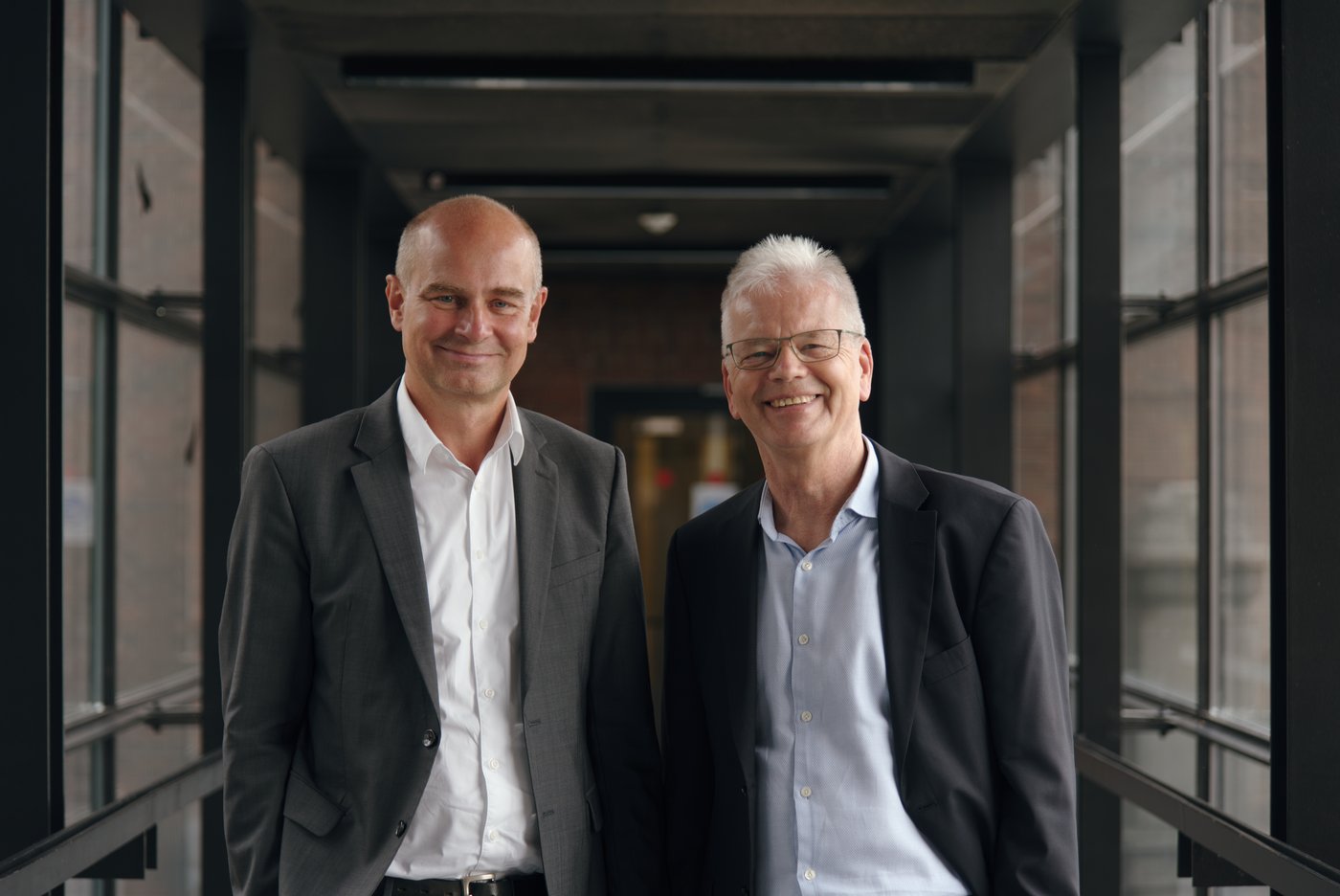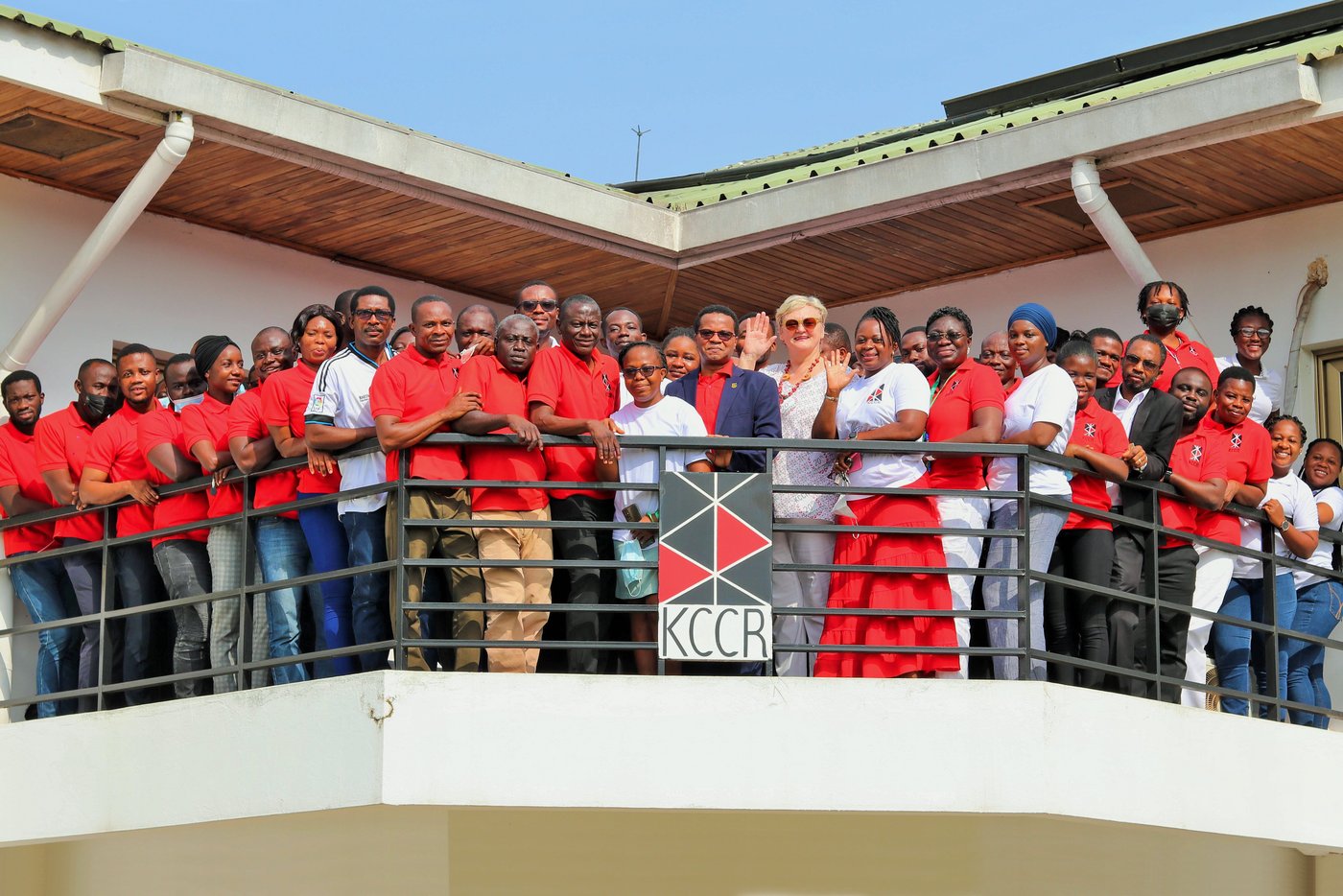Change of leadership at Germany's largest institute for tropical medicine
Research for Global Health in Hamburg
Today, the infectious disease epidemiologist Jürgen May took over the leadership of the Bernhard Nocht Institute for Tropical Medicine (BNITM), the largest research institute for global infections in Germany. The coronavirus pandemic shows how important it is to research pathogens and that experience in the fight against infectious diseases is more important than ever. The Bernhard Nocht Institute in Hamburg is one of the oldest institutions for tropical medicine worldwide.
Infections are a major cause of illness and death worldwide. "The coronavirus pandemic clearly shows us how important it is to prepare for epidemics and to combat emerging pathogens at an early stage," says Prof. Jürgen May, who took over as chairman from retiring predecessor Prof. Egbert Tannich on 1 October. The BNITM has been researching tropical diseases and their pathogens, training health workers and providing diagnostics for 120 years.
Global health in the focus of science
"Today, as the Leibniz Institute for Global Infections, we are involved in large research networks - with the core task of preventing disease and maintaining health," May explains. "In this, global warming, globalisation and mobility will present us with major challenges in the future."

The scientists at BNITM conduct research on everything from molecules to pathogens to the epidemiology of infectious diseases. High-security laboratories, insectaria and the most modern electron microscopes in the world are available for this purpose. "Strong partnerships with institutions in Africa and other regions with poverty-related diseases are particularly important," says the new deputy chairman of the board and virologist Prof. Stephan Günther. It is important to build diagnostic laboratories and train staff in the affected countries, he said. "This is the only way we can work together to sustainably combat infectious diseases such as COVID-19, malaria or Ebola and detect outbreaks at an early stage".
May and Günther emphasise that COVID-19 also poses a continuing threat to Africa, which must be fought with united forces and by all means. At the same time, they point out that politics and society must not neglect other infectious diseases that determine the daily lives of people in low-income countries, where poverty and disease reinforce each other.

Vision of a modern research institution
"Our vision is to further develop the tradition-rich institute as a modern research institution in an international network," says May. Together with the previous chairman, Tannich, the new board has presented plans for the expansion of a modern tropical institute. The historic institute building at Hamburg harbour is to be brought up to date and supplemented by a new research building. There, the researchers at the BNITM want to continue to investigate how epidemics can be better controlled, pathogen structures deciphered and poverty-related diseases increasingly combated. With support from politics, the modernised BNITM at the historic location can continue to make an important contribution to the excellent research locations of Hamburg and Germany.
Hamburg's Science Senator Katharina Fegebank: "I am very pleased that with Prof. Dr. Jürgen May we are able to bind a renowned scientist and excellent expert of the Bernhard Nocht Institute to Hamburg in the long term. Jürgen May has already been closely associated with the city for many years and has excellent networks both nationally and internationally. In the past year and a half, it has become abundantly clear how important the research areas of virology, epidemiology and infectiology are for society as a whole. I am sure that the Bernhard Nocht Institute and the new Chairman of the Board will succeed in further advancing science with their important research results. This also fits in perfectly with the Senate's plans to further develop and expand these research fields in the future. I wish Professor May a happy hand for the tasks ahead, successful projects and congratulate him warmly on behalf of the entire Senate on his new task."
Prof. Egbert Tannich, outgoing Chairman of the Board of BNITM: "It was a great pleasure for me to be able to accompany the development of the Institute in a responsible position. I always felt constructively supported by the Board of Directors, the Board of Trustees and the Scientific Advisory Board. I thank them and all Institute members for the good cooperation. I sincerely wish my successor much success and all the best."
Prof. Jürgen May, Chairman of the BNITM Board: "I would like to thank the Board, the committees and our donors for their trust and I am very much looking forward to working with them. Our work in the countries of the global South is particularly close to my heart. The coronavirus pandemic at the latest has shown: Outbreaks of infection do not stop at borders. This also applies to tropical pathogens, especially in view of global warming. Research for Global Health, as BNITM has always done, will therefore become increasingly important."
Background Information
The Bernhard Nocht Institute for Tropical Medicine
The Bernhard Nocht Institute for Tropical Medicine (BNITM) is Germany's largest institution for research, care and teaching in the field of tropical and emerging infectious diseases. Current research focuses on malaria, haemorrhagic fever viruses, immunology, epidemiology and clinic of tropical infections as well as the mechanisms of virus transmission by mosquitoes. For handling highly pathogenic viruses and infected insects, the institute has laboratories of the highest biological safety level (BSL4) and a safety insectarium (BSL3). BNITM includes the national reference centre for the detection of all tropical infectious agents and the WHO collaborating centre for arboviruses and haemorrhagic fever viruses. Together with the Ghanaian Ministry of Health and the University of Kumasi, it operates a modern research and training centre in the West African rainforest, which is also available to external working groups.
Prospects at the Hamburg location
The BNITM is closely networked with the Leibniz Institute of Virology (LIV), the University Medical Centre Hamburg-Eppendorf (UKE) and the Centre for Structural Systems Biology (CSSB) – also with the vision of establishing a new cluster of excellence in the field of infection research and immunology. The BNITM is an essential building block in Hamburg's strategy to establish a new cluster of excellence together with the University of Hamburg (UHH), the UKE and non-university research in the coming years.
Contact person
Julia Rauner
Public Relations
Phone : +49 40 285380-264
Email : presse@bnitm.de






